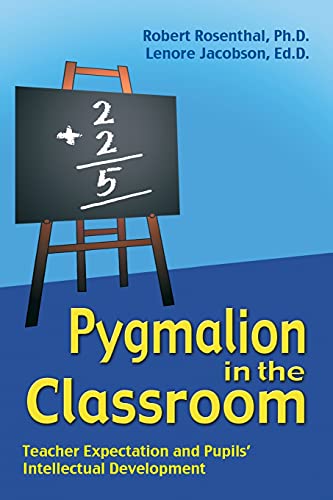Very boring book,I think this book is not for laypersons,it is for scientists and persons interested in statics ,in my opinion this book can be summarized in one statement:positive expectations makes students excel and fulfill their potentials,that is it.
Used to raise teachers' consciousness in a friendly manner!.
While on the surface Pygmalion appears to be a solid experiment, what lies beneath is a train wreck of creative data and stretched conclusions. I took a class which spent several weeks examining the data and methods used by Rosenthal and Jacobson, and the lengths they went to in order bolster their conclusion are laughable.
First published in 1968, updated in 1992, Pygmalion In The Classroom: Teacher Expectation And Pupils' Intellectual Development is the collaborative effort of Robert Rosentha and Lenore Jacobson to take a close look at the "Pygmalion phenomenon", that is, the self-fulfilling prophecy in teachers' expectations of their students. Closely looking at how prejudices can shape a child's own self-esteem and learning environment, Pygmalion In The Classroom is a "must-read" for school administrators, classroom teachers, home schoolers, and anyone else who is keenly interested in the education of future generations.
